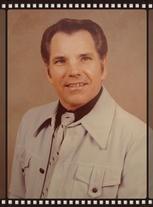"SPILT INK" & Genealogy - DNA Forum
| Forum: Spilt Ink | |||||
|
|||||
|
Ron Smith
 Posts: 58 View Profile |
#22 School is for Learning ( To Sit Quietly ) Posted Monday, March 26, 2018 02:29 PM ( 22 ) My brand new world had just enough of the old, the familiar, to provide comfort and friendliness. I could still see some snow caps on the mountain ranges that encircled the area, henceforth the label, “Basin”. Back in those days, the state used the promotional slogan, “Wonderful Wyoming”. I agree! These days, it is “Like no place on earth” It still works for me! The proof was less than 110 scenic miles away, in our first national park, Yellowstone. If there are places on earth that are genuinely unique, surely Yellowstone is one of them! As was true of most of the communities situated close to the Park and between it and the rest of the nation, Greybull was geared heavily toward catering to the needs of the tourist traffic with both goods and services. During the 1942 season, and through 1945, due to the scarcity of materials and labor, and with rationing of gasoline and tires, the volume of tourist traffic fell drastically, and scheduled maintenance was not performed, resulting in some facilities in the Park never opening at all. The consensus of conventional wisdom was predicting enough of an upswing that 1946 would be a good year. Greybull, along with the rest of the Basin had gone through a long period of travail before it was given sustainable life. Early explorers, graduates of the Lewis and Clark Expedition, found the Basin not too promising for the fur trade; the watershed was not that productive. In later years, cattlemen found it more to their liking until overgrazing occurred. If you have heard it told that oil and water do not mix, that is mostly correct under normal circumstances. But if you state that oil and water can both be “in the mix”, the Bighorn Basin in Wyoming is the proof; quod erat demonstrandum ! In 1893, members of the LDS church, the Mormons, began to dig an irrigation canal, bringing sufficient water to support their settlement on the Greybull River. The effort brought more settlers and more miles of canal, and more water. Other settlers began developing irrigation systems and growing sugar beets around Worland. During World War I, they were joined by descendants of Germans who had been solicited by Catherine the Great of Russia to improve farming methods and agricultural conditions in Russia’s Volga region in the 1850s. They had been promised exemption from military service, but were betrayed by subsequent rulers and were being conscripted into the army. Toward the latter years of the 19th century, they fled Russia in droves, immigrating to the US and Canada. Many of these came to Northern Colorado, also, including my wife’s grandparents and great-grandparents. Oil was discovered in 1884, but the first productive well was struck in 1906.Through the 1930s, prospectors discovered and developed 54 oil and gas fields in the Basin. In 1944, the first pipelines carried oil from the Basin to Billings, Mont., and Casper. During these years, railroads had been making their way to, and into, the Basin, south from Montana up the Bighorn River to Kirby and Thermopolis. After several years, workers had tunneled their way through Wind River Canyon; the railroad finally reached Casper in 1913. The Basin had become a viable player in the US economy, with profitable farms and ranches and railroads to get their products to market. But the Basin had not yet achieved its potential. Engineers began to study the Bighorn River for possible sites for dams to support irrigation and provide electrical power.. These would come eventually, as well as one on the Shoshone River near Cody. I had two uncles that benefited from these projects as they homesteaded, one at Cody, and one near Powell. While rental housing was not readily available, tourist “courts” were a different story. Units could be rented long-term at a discount because it eliminated the overhead of a vacancy, and required no housekeeper. The best accommodations we could come up with in Greybull was a unit in a “motor court” with a small kitchen. Our next-door neighbor would be the crew’s “meter-man” and his wife and small daughter. In school, I was not a good student. I had the attention span of a gnat, if they even have one. I gave the impression of being lazy and not too bright. It would take me twenty years to find out I was dyslexic. I was a dawdler. I would find that anything beyond the window panes was far more interesting than anything happening in the classroom. I would have a hard time ever getting on a teacher’s “good side”. I did find a few things I enjoyed. We had mimeographed sheets that would be distributed, and the teacher would discuss them so we would know what was expected of us. I liked the smell of the mimeograph fluid and would be more intent upon sniffing the paper than listening to the teacher’s instructions. In a row of pictures of toys, we would count how many balloons, how many tops, how many dolls, etc, then we could color the pictures when we were done, I was fascinated by even a picture of a balloon; I had only had one in my entire life! I did not care for the cafeteria lunches. It seemed we had spinach and English peas much too often. The hardest thing was learning to drink from a water fountain. If I have twelve years of this, I think I may be in trouble.
My uncle Earl, Dad’s oldest sibling, took a keen interest in our being in Greybull. One of his enterprises was a movie theater and he often produced his own “short subjects”. A typical show bill was previews of coming attractions, the cartoon, newsreels, an invitation to visit the lobby for snacks and a cola, then “selected short subjects” before the feature film. These “shorts’, as they were called, might be anything from a travelogue to a visit to a poultry farm, generally just enough to give you time to finish your coke and candy bar. He had the idea that if he filmed the scenic drive to the Park, including some points of interest and best scenery inside and outside the park, he could edit the film into a nice original, and marketable short. At one point, he sat in the trunk of the car, as my dad drove, with the trunk lid propped up, and filmed from that vantage point, everything we were leaving behind, including the following traffic. One highlight for Wes and me, of being included in Uncle Earl’s vacation adventure, was when he and Dad selected a place suitable for target practice. Earl had recently acquired a new pistol and had left home without the benefit of trying it out. After a few rounds each, challenging one another to take smaller targets at greater distances, it was called a draw, the pistol was declared a “worthy” purchase, and was put away. There was a lot of attention being paid to nutrition in those days. The Great Depression was hard on lots of people’s supper tables! Many young men in the draft were rejected for military service because of malnutrition. People moving off the farm were leaving their home garden, their source of a balanced diet. Vitamin pills became commonplace on the breakfast table. Mom ordered ours from “Monkey Ward” or Sears and Roebuck which was our mall, or shopping center. Ours came in boxes, not bottles, and each flat box was designed like a candy box with a little hole to “nest” the pill in neat, multiple rows, with a flat lid. We had one box of black pills, soft and rubbery with no odor or taste if you didn’t break one. If that happened it released a stench that on my best day I would not attempt to describe. The other box had smaller translucent amber colored pills with a strong fishy smell. And then, I made a horrible discovery. I was unable to swallow a pill. I think it was a mental block but, try as I may, I could not swallow a pill. My poor frustrated parents tried everything; bribery, threats, hiding them in my mashed potatoes, about the same as hiding a skunk in a rose garden. I would eventually get the trick of it, but it has to be saved for later. Halloween, in 1944 and 1945 must have come and gone without notice, but this year would be different. It would be another “first”. Dad had stopped at a farmer’s roadside display of late October produce and forgot how to say. “no”! He came home with the biggest assortment of squash, gourds and pumpkins he could manage to carry through the door. My mother said she didn’t know how to cook a butternut squash, and he told her not to worry, he would do it. I don’t think he knew either. What he produced was the longest running “leftover” in our family history. He got much better marks in the jack-o‘-lantern department. He even outfitted them with a real candle. The flame put a fragrant scorch on the lid of the lantern and its spicy-sweet flavor followed Wes and me through the night as we joined in with the neighborhood kids, with Dad keeping a watchful eye from a few long strides away. Wes was a hobo with charred cork whiskers, and I was a “home-made” ghost! I don’t remember what we got in our treat bag, but I haven’t forgotten one detail of my first Jack-o‘-lantern. |
||||
|
|||||
|
Ron Smith
 Posts: 58 View Profile |
RE: #22 School is for Learning ( To Sit Quietly ) Posted Saturday, April 7, 2018 03:23 PM Starting my first experience in formal education had learning-curves that had nothing to do with academics, but many could be traced to being hindered by a learning disability we now know as dyslexia. In addition to slow reading speed and poor penmanship. it severely impaired my coordination. After I became more familiar with it in adult life, I was able to recognize it in youngsters in my VBS and Sunday School pupils, and particularly, a nephew who was trying to complete a 4-H leathercraft project. After he was practically abandoned by his leader, I was able to take my leathercraft tools, and experience, to his rescue. When I could detect mental fatigue affecting his efforts, I would declare a "break" and we would take a football to the front yard for a while, he would resume the session with renewed interest and ability. I insisted he do the work himself. He completed the project under the deadline, it was entered in the state fair, and won him a blue ribbon. which was MY reward! |
||||
|
|||||

